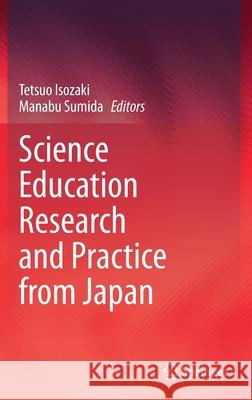Science Education Research and Practice from Japan » książka
topmenu
Science Education Research and Practice from Japan
ISBN-13: 9789811627453 / Angielski / Twarda / 2021 / 199 str.
Kategorie:
Kategorie BISAC:
Wydawca:
Springer
Język:
Angielski
ISBN-13:
9789811627453
Rok wydania:
2021
Wydanie:
2021
Ilość stron:
199
Waga:
0.49 kg
Wymiary:
23.39 x 15.6 x 1.42
Oprawa:
Twarda
Wolumenów:
01
Dodatkowe informacje:
Wydanie ilustrowane











